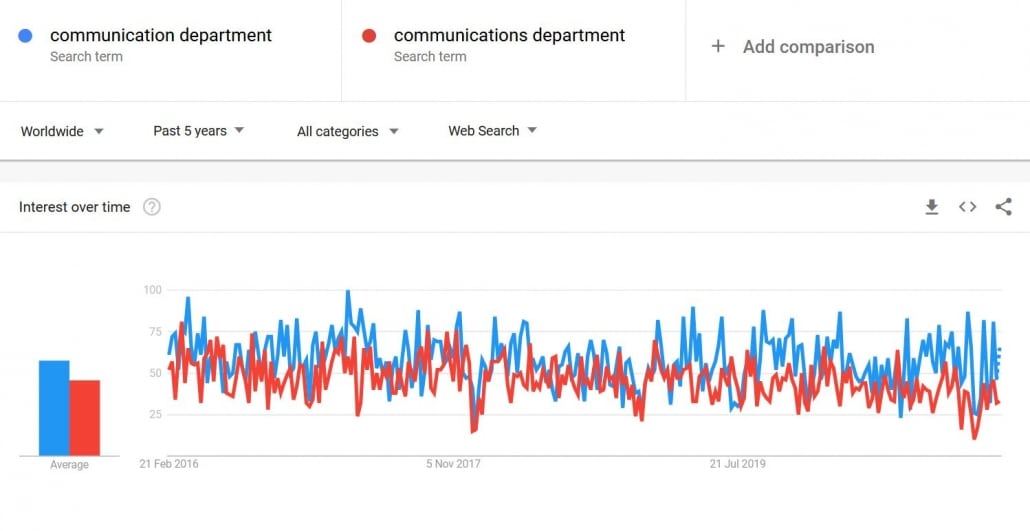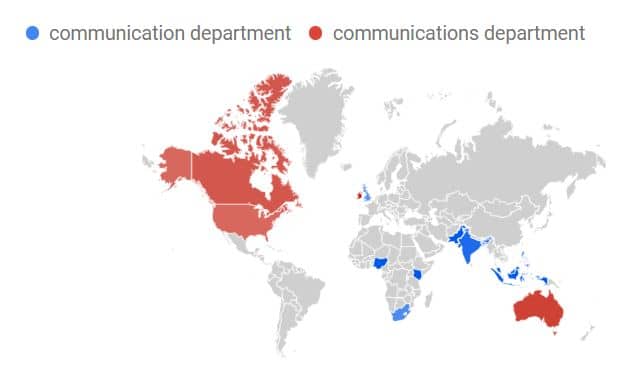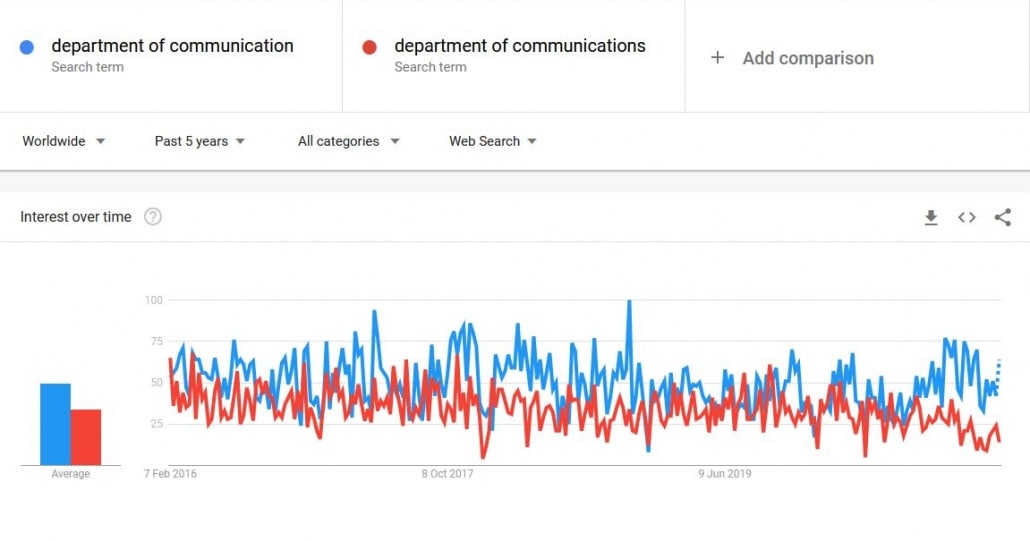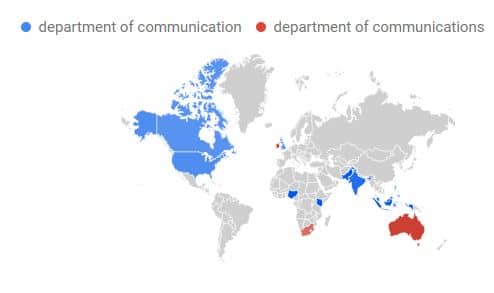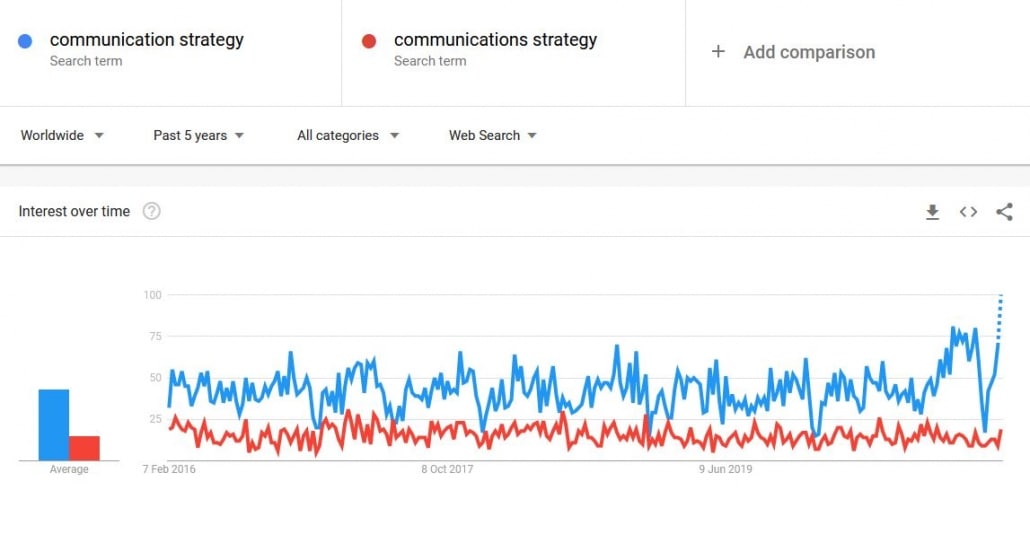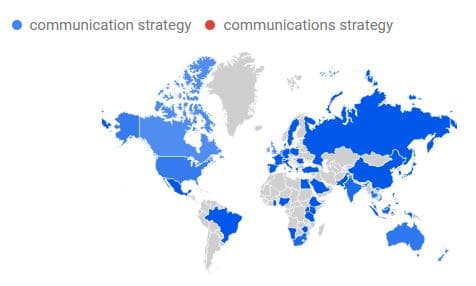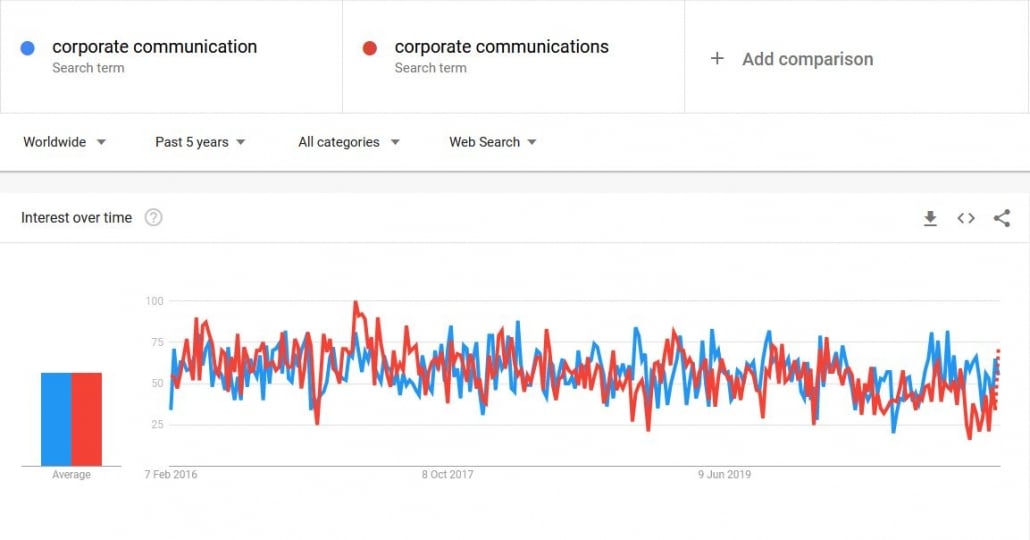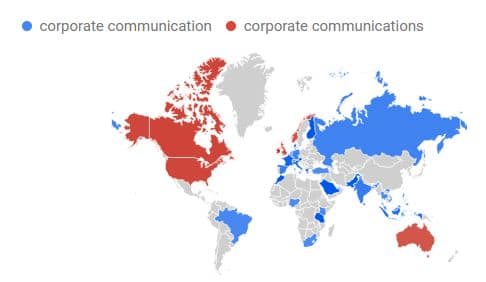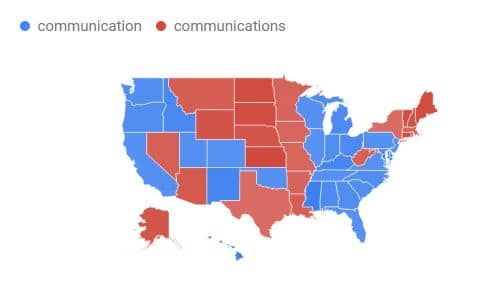What is the difference between communication and communications?
Should you write “financial communication” or “financial communications”? Do you have a communication strategy or a communications strategy? Even for native English speakers, the answer isn’t obvious, so let’s do some research!
Photo credit: LoboStudio Hamburg
Should you write “financial communication” or “financial communications”? Do you have a communication strategy or a communications strategy? Even for native English speakers, the answer isn’t obvious, so let’s do some research!
English is a global language with many variations, so things can get a bit murky and a general answer to vocabulary questions can be surprisingly difficult. For an authoritative source, let’s start with dictionaries.
Dictionary definitions of “communication”
We looked at the Oxford English Dictionary for British English and Merriam-Webster for US English.
Communication
Oxford Dictionary:
- [mass noun] The imparting or exchanging of information by speaking, writing, or using some other medium
- [count noun] A letter or message containing information or news
Merriam-Webster:
- Interchange of thoughts or opinions: a process by which meanings are exchanged between individuals through a common system of symbols (such as language, signs, or gestures)
- An instance of communicated information (such as a letter or telephone call): a written or spoken message
- Facts or information communicated
Communications
Oxford Dictionary:
- Means of sending or receiving information, such as phone lines or computers
- [treated as singular] The field of study concerned with the transmission of information
Merriam-Webster:
- A system (as of telephones, telegraphs, or computers) for communicating information
- The function in an industrial organization that transmits ideas, policies, and orders
- Plural in form but singular in construction: an art that deals with expressing and exchanging ideas effectively in speech or writing or through the graphic or dramatic arts and that is taught as an integrated program at various levels of education in distinction to traditional separate courses in composition and speech
What have we learned from this?
“Communication”, as a mass noun, is the exchange of information. This is the most common use of “communication”.
“Communications”, treated as a singular, refers to technology that enables communication or a field of study and artistic activity.
However, “communication” can also be a count noun that refers to an instance of communication, such as a letter or a phone call. This makes things more complicated.
A department of communication, financial communication or communication strategy would then deal with the imparting or exchange of information.
In turn, a department of communications, financial communications or communications strategy would deal with many instances of communication or the underlying infrastructure.
This helps us understand the meaning, but what is the correct use?
Merriam-Webster tells us that communications in US English can be a function in an organisation and mentions “communications department” as an example, but the Oxford Dictionary makes no such mention.
To get a better idea of how “communication” vs “communications” is used, let’s turn to Google trends.
How are “communication” and “communications” used in English?
We are trying to understand how “communication” and “communications” are used in a business context. To avoid confusion with the means of communications or the technological sense of communications, we decided to look at relevant phrases containing “communication(s)” rather than looking at the words in isolation.
According to the dictionary, “communications department” is an accepted phrase in US English, so let’s start with that.
Communication department vs communications department
The US does in fact use “communications department” more frequently, if only marginally. In the UK, “communication department” is the more popular phrase, while Ireland, Canada and Australia side with the US.
Department of communication vs department of communications
Only a slight change of wording is enough to change the results in the US. While other the English-speaking countries’ preference is consistent with their use of “communication(s) department”, in the US, “department of communication” is the more popular phrase. Could it be that the communications department deals with phone networks and fibre optic cables, while the department of communication is more concerned with the human exchange of information in general?
Communication strategy vs communications strategy
Our previous research suggests that a communication strategy lays out what to communicate, while a communications strategy might be an analysis of what medium to use. Fortunately, the global use indicates quite clearly that “communication strategy” is the more common phrase.
Corporate communication vs corporate communications
Looking at “corporate communication” and “corporate communications” usage does seem to differ across the globe. English-speaking countries like the UK, Ireland, the US, Canada and Australia search for “corporate communications” more frequently, but it is still hard to draw a conclusion here. “Corporate communication” is not an uncommon phrase in the English-speaking world, but the messages and departments within the field of corporate communications should be referred to as “corporate communications”, and this is apparently the more common phrase.
A strange map of communication(s)
With their variety of uses, comparing communication and communications in isolation might be like apples and oranges, but this distribution in the United States still gives us a pattern that is too odd not to share.
Conclusion
The bad news is, when it comes to “communication” vs “communications” there is no universally correct answer. The good news is, with usage varying so much across the globe, you’re unlikely to misstep by choosing either.
What we have learned, however, is that you can make a conscious choice to emphasise the human exchange of information or the distribution of its instances depending on whether you add an “S” or not. The Cornell Department of Communication gives a clear explanation of their decision that sums up this point:
The simple answer is that we use the term “communication” to reflect our department’s focus on the social scientific study of communication – specifically, the process by which humans use symbols, verbal and nonverbal, to create meaning and form relationships with other humans in face-to-face or mediated environments. This is the essence of what we teach, research, and do in our department. “Communications,” in contrast, is often used to refer to the products – the messages that are transmitted or distributed – or to the equipment (like wireless or fiber optic cables) that conducts the transmission.
Tip:
Whether you have a department of communication or a department of communications, your terminology should be consistent. This is why we help our clients with corporate wording glossaries and language style guides. Let us consult you if you want to find out more!


